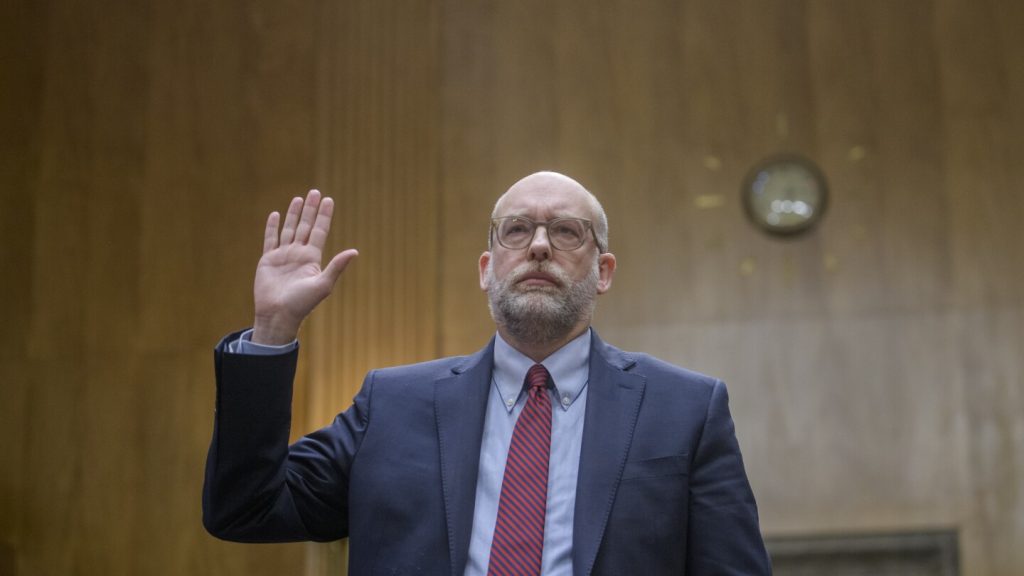The Trump Administration’s Swift Shutdown of the Consumer Financial Protection Bureau
In a significant move, the Trump administration, through Russell Vought, the newly appointed director of the Office of Management and Budget, has ordered the Consumer Financial Protection Bureau (CFPB) to cease nearly all its operations. This directive, issued via email, mandates the suspension of proposed rules, halts the implementation of finalized rules, and stops ongoing investigations. The CFPB, established after the 2008 financial crisis to safeguard consumers, has effectively been shut down. This action underscores the administration’s efforts to curtail the bureau’s influence, a long-standing target of conservatives since its inception under President Obama.
Vought’s Directives and Immediate Effects
Vought’s directives have immediate and far-reaching consequences. The CFPB is instructed to freeze all supervision and examination activities, significantly limiting its ability to oversee financial institutions. Additionally, the bureau’s headquarters will close for a week, with employees instructed to work remotely. This operational halt has sparked concerns over the bureau’s ability to protect consumers, as it can no longer conduct essential regulatory functions. The closure and remote work order follow similar actions taken by the administration to dismantle other federal agencies, such as the U.S. Agency for International Development, indicating a broader strategy to reduce government oversight.
Reactions and Implications: From Elon Musk to Elizabeth Warren
The shutdown of the CFPB has drawn varied reactions. Elon Musk, commenting on the platform X, succinctly remarked, “CFPB RIP,” while the bureau’s website displayed a “page not found” message, symbolizing its operational demise. Russell Vought justified the action by highlighting the bureau’s "excessive" reserves, emphasizing the need to curb its autonomy. Conversely, figures like Elizabeth Warren and advocacy groups have expressed strong opposition, arguing that the CFPB is a crucial protector of consumer rights. Warren has criticized the move as a green light for corporate malpractice, showcasing the divisive nature of the administration’s decision.
Historical Context and the CFPB’s Role
Conceived by Elizabeth Warren and established under the Dodd-Frank Act, the CFPB has been a cornerstone of financial regulation, securing nearly $20 billion in relief for consumers. Its recent actions, such as suing Capital One for alleged fraud, highlight its proactive role in consumer protection. The bureau’s effectiveness has made it a target for financial institutions and conservatives, who view it as overreaching. The administration’s actions, including the dismissal of former director Rohit Chopra, reflect a strategy to diminish the CFPB’s impact, aligning with broader efforts to reduce regulatory oversight.
Politicization and Potential Future Implications
The shutdown of the CFPB intersects with President Trump’s conflicting agendas: reducing government regulation while protecting working-class families. The bureau’s inactive status halts initiatives like capping credit card interest rates, leaving consumers vulnerable. Critics fear this move emboldens financial predators and undermines safeguards against abusive practices. Additionally, concerns arise over data access, particularly with Elon Musk’s potential entry into payment systems, raising questions about privacy and competitive fairness.
Conclusion: A Critical Juncture for Consumer Protection
The Trump administration’s swift actions against the CFPB mark a pivotal moment in consumer protection. While the bureau’s closure is not formal, the operational halt significantly weakens its regulatory teeth. Advocates and watchdogs are left concerned about the future of financial oversight, as consumers may face greater risks without the CFPB’s watchful eye. This move reflects broader tensions in regulatory policy, highlighting the ongoing debate between market freedom and consumer safeguards. As political and legal challenges unfold, the CFPB’s fate remains uncertain, underscoring the challenges in balancing deregulation with consumer welfare.












